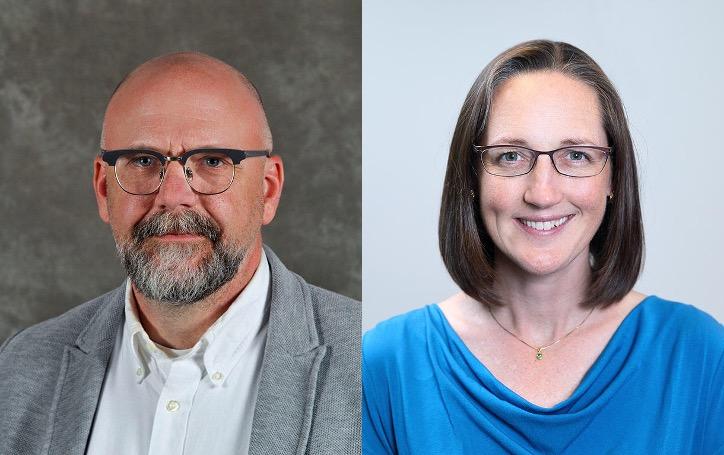Christian Abnet and Lindsay Morton Elected to American Epidemiological Society
, by DCEG Staff
In March 2021, Christian C. Abnet, Ph.D., M.P.H., Chief of the Metabolic Epidemiology Branch, and Lindsay M. Morton, Ph.D., Deputy Chief of the Radiation Epidemiology Branch, were elected to the prestigious American Epidemiological Society (AES), an honorary society dedicated to epidemiology. The mission of the AES is to provide a scientific forum for senior epidemiologists, who engage in a lively interchange of ideas with their peers at each annual meeting.
Each year, individuals are nominated and evaluated on the basis of the quality and impact of their epidemiologic accomplishments and contributions; academic activities, such as teaching and mentoring; and other aspects of professional work, including administrative leadership and community service.
“This prestigious honor was bestowed upon two very fitting leaders in epidemiology,” said Stephen J. Chanock, M.D., Division Director.
Below are the inscriptions accompanying their nominating materials.
Dr. Abnet is an international expert in the etiology of esophageal and gastric cancers. Through multiple long-term cohort studies and case-control studies, his research has focused on the effects of diet, environmental exposures, and genome-wide association studies of common genetic variation and cancer risk. He has also led the development of methods for conducting epidemiologic studies of the human microbiome. He holds a Ph.D. in Environmental Toxicology from the University of Wisconsin and an MPH in Epidemiology from the University of Minnesota.
Dr. Morton is internationally recognized for groundbreaking research on hematologic malignancies and multiple primary cancers. Applying expertise in descriptive, analytic, and molecular epidemiology, she overcame diverse challenges facing each field. She defined how the clinical and biologic heterogeneity among lymphoma subtypes corresponds to differences in etiology. She led large-scale genomic studies to identify germline genetic susceptibility to treatment-related subsequent neoplasms in childhood cancer survivors as well as quantifying radiotherapy- and chemotherapy-related cancer risks. She received her doctorate in cancer epidemiology from Yale University in 2004.
